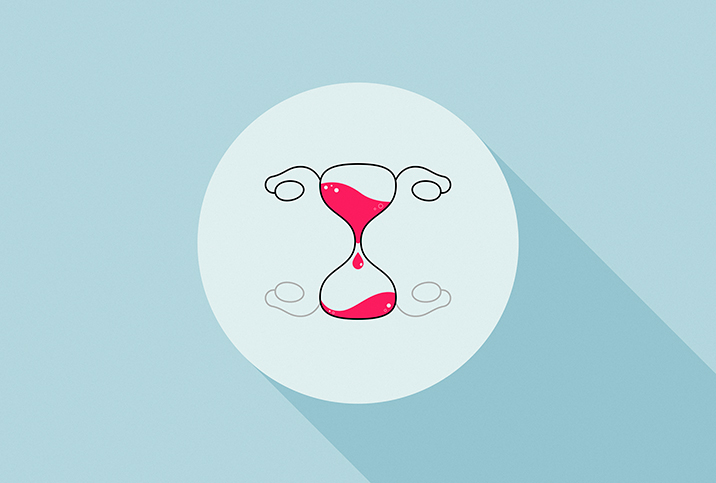Your Birth Control May Mask Menopausal Symptoms

While there's plenty of information out there to help women know what to expect with menopause—the point in time when your period has stopped completely for at least 12 consecutive months—not as much is available on perimenopause.
During perimenopause, also called the menopausal transition, you're still getting your periods, but they aren't as regular as they once were (assuming you had a regular cycle to begin with). You also might start experiencing those symptoms you've heard about, including hot flashes, night sweats and mood swings.
But many women are still using birth control pills in their 40s and 50s when perimenopause is occurring, which can mask the telltale signs. They might not even know they're past menopause.
"Birth control pills absolutely...override any of the natural symptoms of menopause," confirmed May Blanchard, M.D., division chief of General Obstetrics and Gynecology at the University of Maryland Medical Center, and an associate professor at the University of Maryland School of Medicine.
'Birth control pills absolutely...override any of the natural symptoms of menopause.'
Birth control—especially kinds that include estrogen—masks the regular symptoms you'd expect to experience during perimenopause, agreed Lauren Sundheimer, M.D., M.S., F.A.C.O.G., an OB-GYN and reproductive endocrinologist and infertility specialist with Newport Fertility Center, a CCRM Orange County Clinic in Newport Beach, California.
"Women who are on the pill won't necessarily know when they've stopped ovulating for good. They're [still] getting a bleed because of the hormones in the birth control pills," Sundheimer said.
Essentially, birth control is replenishing the hormones that are naturally decreasing during perimenopause.
Should I continue to use my birth control?
Though the chances of pregnancy decline significantly during perimenopause, you can still be fertile. So, until menopause is confirmed by your doctor, continuing to use some form of contraceptive is important—unless you want to get pregnant, of course.
But as Sundheimer explained, since it can be tricky to confirm menopause if you're on birth control, you'd have to actually stop taking it to see if you're still getting your menstrual cycle.
Remember, though, irregular and skipped periods are common during perimenopause.
"A typical pattern might be some menstrual irregularities anywhere from two to seven years before the periods actually stop, sometimes [resulting] in skipping some periods intermittently," Blanchard said.
Blanchard recommends that her patients stop using birth control around age 52, which is the average age of menopause. Then, if the patient is still getting her period, they can reevaluate.
She said the following questions are worth considering as you make the right choice for yourself:
- Do your periods come back?
- Do they come back normally every month?
- Or are they once every few months?
- Or are they completely haphazard?
Based on how you answer the questions above, you might decide whether to stay on birth control pills for another year, Blanchard said.
If your doctor isn't asking you these questions, bring them up at your next appointment, and then make the decision that makes the most sense for you as you approach menopause.


















